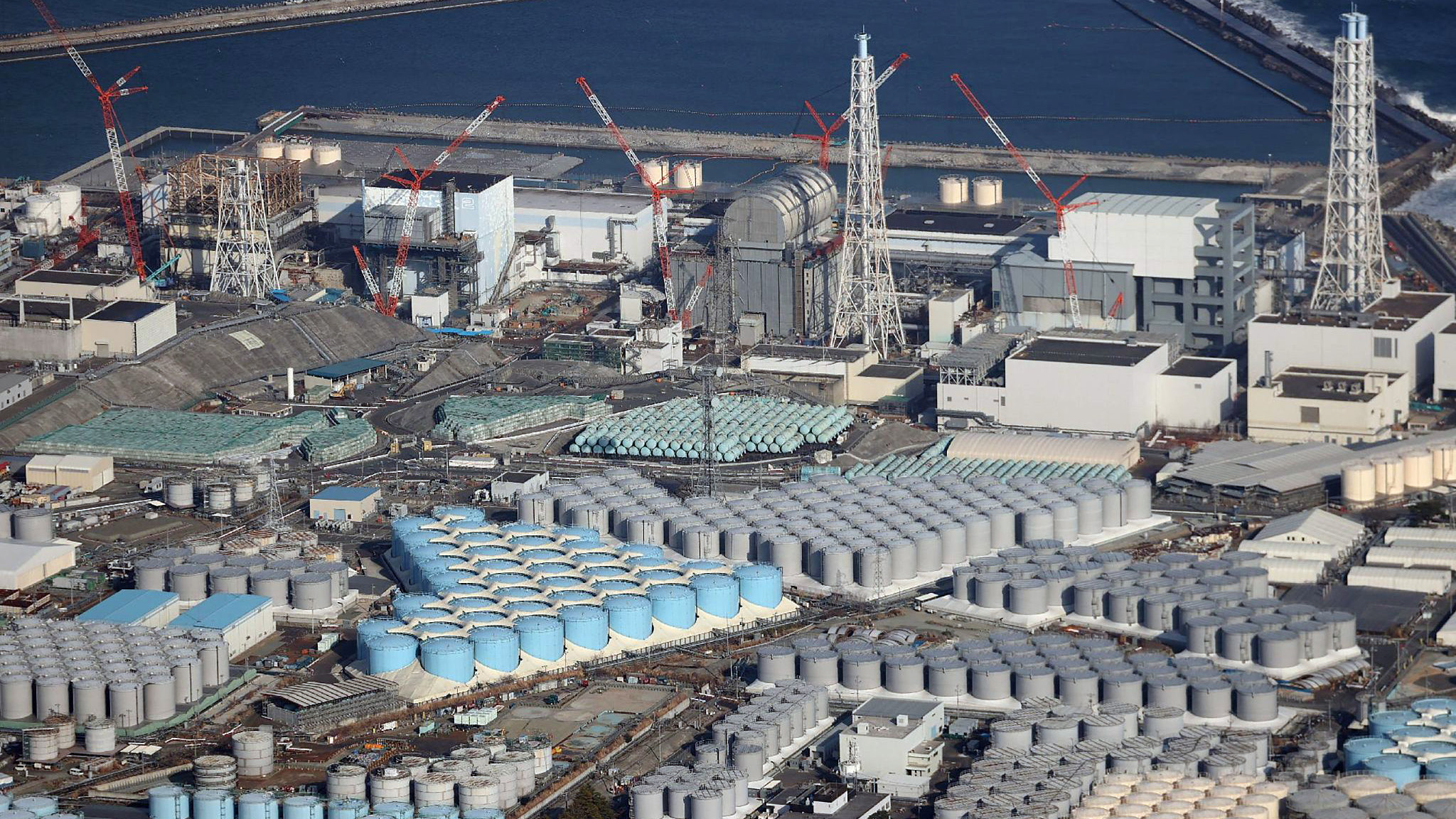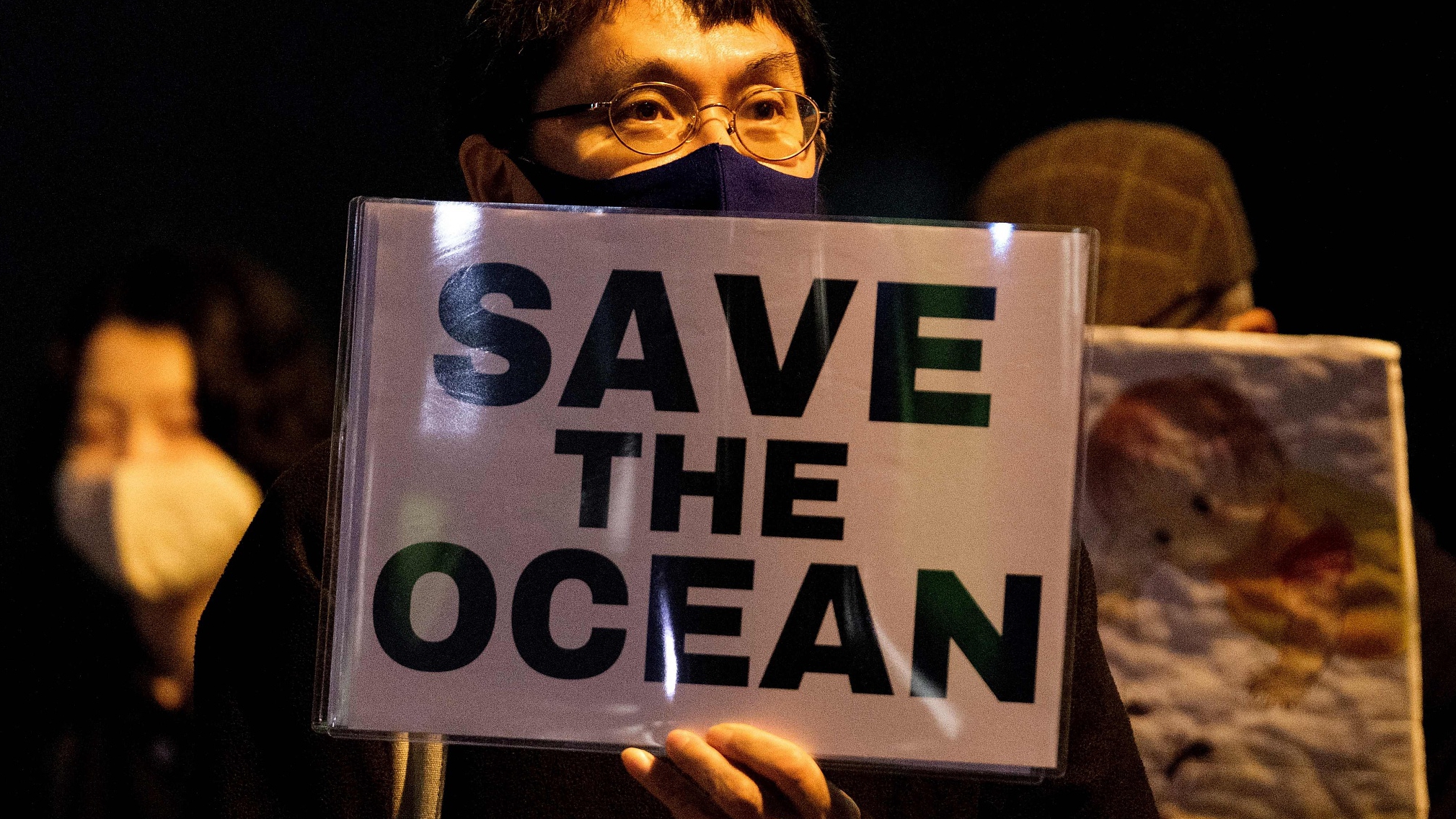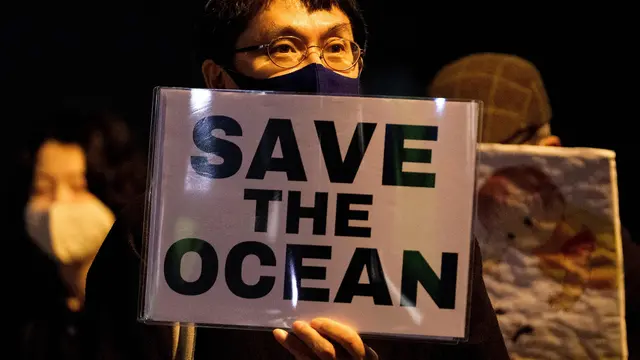00:32

Japan should not expect the world to pay the bill for its choice of discharging contaminated wastewater, a Chinese Foreign Ministry spokesperson said on Thursday at a press briefing.
Zhao Lijian, Foreign Ministry spokesperson raised doubts and questions when asked to comment on Japan's plan to release radioactive wastewater.
Zhao said Japan's decision of discharging treated wastewater into the ocean after a serious nuclear accident is unprecedented and will inevitably have an impact on other countries.
As a contracting party to the United Nations Convention on the Law of the Sea, Japan is expected to exhaust all measures to minimize the pollution within their sovereignty. Zhao questioned if Japan had tried all efforts to align with the provisions, asking "Has Japan fulfilled all these obligations?"

A protestor holds a slogan during a rally against the Japanese government's decision to release treated water from the stricken Fukushima Daiichi nuclear plant into the sea, outside of the prime minister's office in Tokyo, April 13, 2021. /CFP
He also questioned if Japan has taken diverse
opinions
and voices into consideration as opposition has been voiced by the local fishery industry, global environment organizations and neighboring countries.
Zhao pointed out that endorsement by the U.S. does not mean endorsement by the international community. The U.S. backed Japan's decision in a statement saying "Japan has weighed the options and effects, has been transparent about its decision, and appears to have adopted an approach in accordance with globally accepted nuclear safety standards."
Zhao reminded the U.S. to urge Japan to handle the disposal issue in "an honest, scientific and responsible manner" for the sake of marine environment and mankind.
According to Tokyo Electric Power Company, who runs the Fukushima nuclear plant, the nuclear wastewater contains a total of 62 radionuclides. The treated water from the Fukushima nuclear plant contains other radionuclides apart from tritium, which could cause potential immeasurable risks to the ecosystem and marine creatures.
Read More:
Fukushima: Contaminated water release sparks alarm
Why it's hard to trust Japan's handling of Fukushima wastewater
 简体中文
简体中文

